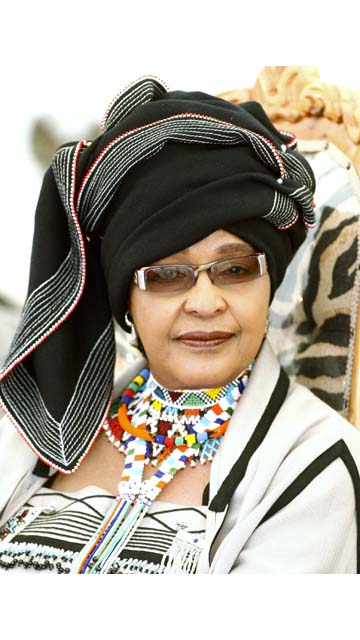
Dr Nomalanga Mkhize and Siphokazi Magadla broke down normative ideas of beauty and femininity at the Young Women’s Dialogue discussion event held on 30 July. The event, titled #MyAppearanceIsPolitical, sought to deconstruct harmful Eurocentric beauty standards and problematised notions of white feminism.
Magadla began the discussion by giving examples of black women whose style she admires. Winnie Mandela, Coretta Scott King and Brenda Fassie were all cited as icons. “She used style to affirm our dignity as black people,” Magadla said of Winnie Mandela, explaining that her choice to be fashionable was a radical rejection of the oppressive nature of apartheid. “She was pushing against systems that violate and rob black people of normal things, like beauty,” explained Magadla.
Beauty is inherently political due to the ways in which people classify one another based on outward appearances. Magadla’s statement, “What we look like is not the ideal,” was met with affirmative murmurs from the large audience. She emphasised the fact that very often fashion can be used as a form of protest against hegemonic discourses, citing the “ungovernability” of Brenda Fassie as a rejection of patriarchal expectations of black femininity.
Magadla concluded with the idea that beauty has become a commercial product in a system in which beautiful women become a kind of brand. Women such as Khanyi Dlomo market themselves which sustains exclusive discourses about black female bodies. “Notions of beauty are interconnected with luxury, people talk about themselves as a brand. Do we find ourselves in a space where we have a narrow view of beauty?” Magadla asked rhetorically.
The mostly female audience dissolved into laughter when Mkhize began her address and stated, “I’m here to critique the hashtag.” She went on to suggest that the discussion’s initial position on appearance had sprung from a “white suburban feminism” perspective as it placed the black body as the ‘other’ in opposition to the normalised white female body. “This is a colonising discourse,” Mkhize explained.
Audience members addressed the speakers and raised points pertinent to culture and race issues, particularly regarding false notions of a ‘clean’ or ‘perfect’ femininity that is unattainable. The purpose of these discussions is to allow women to share ideas and experiences. In this way they can attempt to find a way to construct feminisms that are inclusive and deconstruct damaging patriarchal and colonial discourses about the female body.
Photograph: Fashion Icon - Winnie Mandela
Article by: Chelsea Haith
